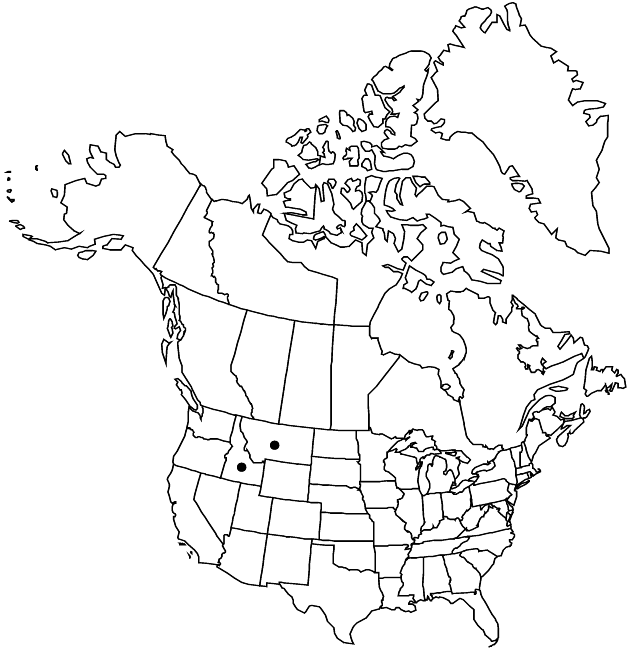Difference between revisions of "Erigeron evermannii"
Fl. Rocky Mts., 903, 1067. 1917.
FNA>Volume Importer |
imported>Volume Importer |
||
| (2 intermediate revisions by 2 users not shown) | |||
| Line 8: | Line 8: | ||
}} | }} | ||
|common_names=Evermann’s fleabane | |common_names=Evermann’s fleabane | ||
| + | |special_status={{Treatment/ID/Special_status | ||
| + | |code=E | ||
| + | |label=Endemic | ||
| + | }} | ||
|basionyms= | |basionyms= | ||
|synonyms= | |synonyms= | ||
| Line 46: | Line 50: | ||
|publication title=Fl. Rocky Mts., | |publication title=Fl. Rocky Mts., | ||
|publication year=1917 | |publication year=1917 | ||
| − | |special status= | + | |special status=Endemic |
| − | |source xml=https:// | + | |source xml=https://bitbucket.org/aafc-mbb/fna-data-curation/src/2e0870ddd59836b60bcf96646a41e87ea5a5943a/coarse_grained_fna_xml/V19-20-21/V20_657.xml |
|tribe=Asteraceae tribe Astereae | |tribe=Asteraceae tribe Astereae | ||
|genus=Erigeron | |genus=Erigeron | ||
Latest revision as of 20:04, 5 November 2020
Perennials, 2–10 cm; taprooted, caudices multicipital or branches relatively long and thick to relatively slender, lignescent. Stems erect to ascending, glabrous or sparsely strigose, sometimes sparsely villosulous distally, eglandular. Leaves basal, sometimes few cauline; blades oblanceolate to spatulate (usually folding), 10–40 × 2–7 mm, cauline bractlike or 0, margins entire, faces glabrous or glabrate, eglandular. Heads 1. Involucres 5–8 × 7–13 mm. Phyllaries in 2–3 series (commonly purplish), sparsely to moderately hirsuto-villous, sometimes sparsely minutely glandular. Ray florets 15–40; corollas white, 6–10 mm, laminae not coiling or reflexing, straight. Disc corollas 3.6–4.5 mm. Cypselae 3.2–3.5 mm, 2-nerved, faces sparsely strigose; pappi: outer of setae, inner of 25–35 (stramineous, dull) bristles.
Phenology: Flowering Jul–Aug.
Habitat: Alpine slopes, ridges, outcrops, talus, gravelly slopes, often with whitebark pine
Elevation: 2400–3500 m
Discussion
Erigeron evermannii is superficially similar to E. leiomerus and is sometimes misidentified as such; the latter has wider, more numerous, and merely glandular phyllaries, reflexing rays, non-folding leaves, and leafier stems.
Selected References
None.
